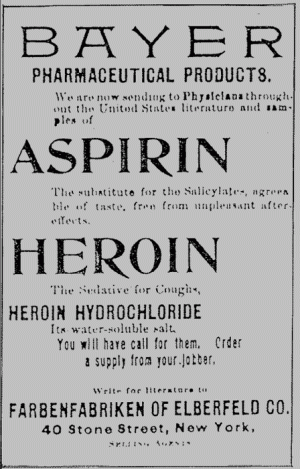Australia cracks down on risky weight-loss drug replicas
In a decisive move to safeguard public health, Australian authorities have announced a ban on counterfeit weight-loss medications, including replicas of the widely-used drugs Ozempic and Mounjaro.
This crackdown comes amid a global supply shortage that has left many Australians scrambling for alternatives, but at what cost?
Ozempic and Mounjaro, originally developed as treatments for diabetes, have garnered a reputation for their secondary effect of significant weight loss.
Patients have reported reductions in body weight of around 15 per cent, thanks to the drugs' ability to induce a feeling of fullness.
However, the soaring demand for these medications has outstripped the supply of semaglutide, the active ingredient in Ozempic, leading to a shortage that is expected to last until at least 2025.
In response to this shortage, some pharmacies have been producing generic substitutes using different ingredients to mimic the effects of Ozempic and Mounjaro.
These 'imitation' drugs have raised serious health concerns due to adverse side effects, prompting the government to take action.
Health Minister Mark Butler announced that from October, the government will remove GLP-1 receptor agonists, including semaglutide, from an exemption list that previously allowed pharmacists to compound these drugs.
This ban, which will reportedly affect 20,000 Australians, is a protective measure to prevent the development and distribution of potentially harmful replica drugs.
Mr Butler emphasised the gravity of the situation, stating, 'This action will protect Australians from harm and save lives. I’m really concerned in the way in which this market has developed that compromises public safety.'
Pharmacies that continue to compound and sell these replicas after the ban takes effect could face severe civil and criminal penalties under the Therapeutic Goods Act.
While the ban may cause concern for some, the Health Minister reassured that it would not affect other compounded medicines, only those related to GLP-1 receptors.
He said: ‘We recognise there is a valid place for compounding in certain circumstances. This action will not affect compounded medicines other than GLP-1 receptors.’
‘While I understand that this action may concern some people, the risk of not acting is far greater.’
The urgency of the ban is underscored by reports of dangerous side effects, such as peripheral neuropathy, associated with the use of compounded semaglutide.
Furthermore, there have been cases of fraudulent injections that did not contain any semaglutide at all.
The situation was brought into the spotlight by a Four Corners investigation, which revealed the illicit production and exportation of counterfeit Ozempic by an Australian pharmacist to the United States.
While the shortage of Ozempic is expected to continue until the end of December, there is a glimmer of hope for Mounjaro, with supply forecasts suggesting availability may improve by the end of August, according to the Therapeutic Goods Administration’s (TGA) Medicine Shortage Reports Database.
For our readers who may be affected by this ban, it's crucial to consult with your healthcare provider about safe and effective alternatives for weight management.
It's also important to stay informed about the medications you use and to only obtain them from reputable sources.
Source: ABC News (Australia)/YouTube
 What are your thoughts on this ban, members? Have you or someone you know been affected by the shortage of weight-loss medications like Ozempic and Mounjaro? Share your experiences and thoughts below.
What are your thoughts on this ban, members? Have you or someone you know been affected by the shortage of weight-loss medications like Ozempic and Mounjaro? Share your experiences and thoughts below.
This crackdown comes amid a global supply shortage that has left many Australians scrambling for alternatives, but at what cost?
Ozempic and Mounjaro, originally developed as treatments for diabetes, have garnered a reputation for their secondary effect of significant weight loss.
Patients have reported reductions in body weight of around 15 per cent, thanks to the drugs' ability to induce a feeling of fullness.
However, the soaring demand for these medications has outstripped the supply of semaglutide, the active ingredient in Ozempic, leading to a shortage that is expected to last until at least 2025.
In response to this shortage, some pharmacies have been producing generic substitutes using different ingredients to mimic the effects of Ozempic and Mounjaro.
These 'imitation' drugs have raised serious health concerns due to adverse side effects, prompting the government to take action.
Health Minister Mark Butler announced that from October, the government will remove GLP-1 receptor agonists, including semaglutide, from an exemption list that previously allowed pharmacists to compound these drugs.
This ban, which will reportedly affect 20,000 Australians, is a protective measure to prevent the development and distribution of potentially harmful replica drugs.
Mr Butler emphasised the gravity of the situation, stating, 'This action will protect Australians from harm and save lives. I’m really concerned in the way in which this market has developed that compromises public safety.'
Pharmacies that continue to compound and sell these replicas after the ban takes effect could face severe civil and criminal penalties under the Therapeutic Goods Act.
While the ban may cause concern for some, the Health Minister reassured that it would not affect other compounded medicines, only those related to GLP-1 receptors.
He said: ‘We recognise there is a valid place for compounding in certain circumstances. This action will not affect compounded medicines other than GLP-1 receptors.’
‘While I understand that this action may concern some people, the risk of not acting is far greater.’
The urgency of the ban is underscored by reports of dangerous side effects, such as peripheral neuropathy, associated with the use of compounded semaglutide.
Furthermore, there have been cases of fraudulent injections that did not contain any semaglutide at all.
The situation was brought into the spotlight by a Four Corners investigation, which revealed the illicit production and exportation of counterfeit Ozempic by an Australian pharmacist to the United States.
While the shortage of Ozempic is expected to continue until the end of December, there is a glimmer of hope for Mounjaro, with supply forecasts suggesting availability may improve by the end of August, according to the Therapeutic Goods Administration’s (TGA) Medicine Shortage Reports Database.
For our readers who may be affected by this ban, it's crucial to consult with your healthcare provider about safe and effective alternatives for weight management.
It's also important to stay informed about the medications you use and to only obtain them from reputable sources.
Source: ABC News (Australia)/YouTube
Key Takeaways
- Australian authorities have banned counterfeit weight-loss medications, including replicas of drugs like Ozempic and Mounjaro, due to health risks.
- The ban came amid a global shortage of semaglutide, leading to the creation of imitation drugs using alternative ingredients with potential adverse side effects.
- From October, compounding of drugs similar to Ozempic will be prohibited, and pharmacies violating this regulation may face severe penalties.
- Recent investigations exposed safety concerns and fraudulent practices surrounding counterfeit weight-loss drugs, prompting the government to take decisive action to protect public health.










